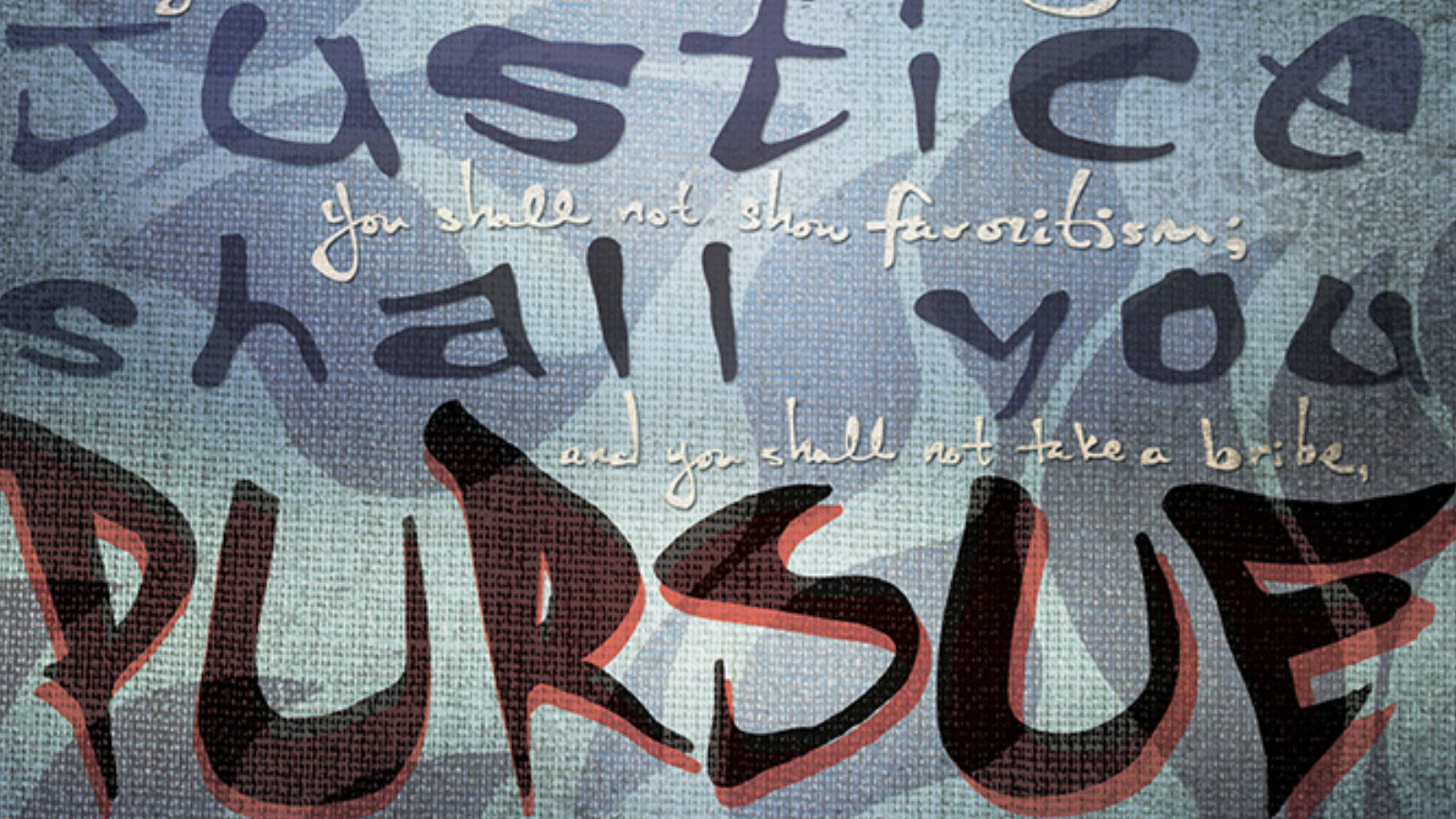Commentary on Parashat Shoftim, Deuteronomy 16:18-21:9
Parashat Shoftim is largely concerned with the laws of establishing leadership and ordering society when the Israelites enter the promised land. The very first verses mandate the appointment of judges and magistrates at the local level in order to lead the people in ways of justice. Later, we learn of the high court that will be established in Jerusalem, where judges will bring any unresolved disputes.
Shoftim also lays out the laws of testimony, including the requirement for two witnesses in capital cases and the punishment for witnesses who conspire against a defendant. In addition to the judicial system, Shoftim includes the laws for establishing an Israelite monarchy and the charge to observe the word of God’s prophets.
Interspersed throughout these largely civic laws are commands not to engage in avodah zarah, literally “foreign worship” but commonly understood to mean idolatry. Immediately following the charge to pursue justice, Moses warns the people not to plant an Ashera tree, an ancient form of idol worship, before God’s altar. The laws of testimony are nestled into a section on executing people who worship foreign gods. And the command to adhere to the words of God’s prophets follows a warning not to engage in witchcraft and fire worship.
The juxtaposition of these topics seems odd. What does the judicial system have to do with wiping out idol worship?
With your help, My Jewish Learning can provide endless opportunities for learning, connection and discovery.
At the most basic level, these laws are all fundamentally concerned with the ordering of society. To that extent, conspiring witnesses are just as problematic as idol worshipers. They both create social disorder and exert negative influence.
Yet there is an obvious difference between the two. Idol worshipers present a theological threat, not merely a social one. The sages, however, teach us just the opposite.
Tractate Sanhedrin, the volume of Talmud that deals with the laws of the judicial system, contains within it many meditations on the gravity of what it means to be a judge. Rabbi Shmuel bar Nahmani taught in the name of Rabbi Yonatan:
Any judge who judges a judgment according to absolute truth causes the Divine Presence to rest among Israel, as it is stated: “God stands in the congregation of God; in the midst of the judges He judges” (Psalms 82:1). And every judge who does not judge a judgment according to absolute truth causes the Divine Presence to withdraw from Israel, as it is stated: “For the oppression of the poor, for the sighing of the needy, now will I arise, says the Lord” (Psalms 12:6).
The rabbis imagine a direct correlation between the execution of justice and God’s presence among the people of Israel. In pursuing justice, judges are performing God’s work. The rabbis take this responsibility so seriously that they liken a judge in a courtroom to a defendant with a noose around their neck or a man with a sword between his thighs. The slightest misstep will result in death.
If carrying out justice is an instrument by which God is manifest in this world, then it makes perfect sense that the failure to do so should have the opposite effect. In this same section of Sanhedrin, the rabbis go on to explain the odd juxtaposition between the appointment of judges and the planting of the Ashera tree:
Reish Lakish says: With regard to anyone who appoints over the community a judge who is not fit, it is as though he plants an Ashera tree among the Jewish people, as it is stated: “You shall make judges and officers for yourself” (Deuteronomy 16:18), and juxtaposed to it, it is written: “You shall not plant yourself an Ashera of any kind of tree” (Deuteronomy 16:21). Rav Ashi says: And in a place where there are Torah scholars, it is as though he planted the tree next to the altar, as it is stated: “You shall not plant yourself an Ashera…beside the altar of the Lord your God.”
The planting of an Ashera tree and the appointment of an unqualified judge are similar in that they both hold the potential to lead the people astray. An Ashera tree will lead to idol worship, while the unfit judge will fall short in rendering legal decisions that uphold justice. We might be inclined to think of these sins as categorically different from one another. However, Reish Lakish comes to teach us otherwise. The perversion of justice is tantamount to idol worship because both undermine the expression of God’s truth and supremacy in this world.
Rav Ashi goes even further to say that these sins are especially destructive when they take place in spaces that were otherwise committed to the observance of Torah and mitzvot. Planting an Ashera tree is one thing. But to plant one across from an altar dedicated to God is an outright attack on monotheism and corrupts the efforts of those worshipping God with a pure heart. So too, legitimizing the authority of an unqualified judge makes it possible for him to negatively influence his peers, and thereby magnify the scale of havoc such a court can wreak on society.
Parashat Shoftim is not only concerned with who in our communities wield power, but ensuring that those entrusted to do so perform their jobs carefully and responsibly. It teaches us that when an individual performs her civic duties, she is doing nothing short of God’s work. What’s more, it warns of us exactly what is at stake should we fail to preserve social justice.


